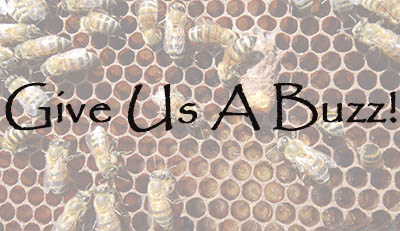Master Level Requirements
- Candidates must have held the Apprentice and Advanced Beekeeper ranks for one year each and have been a practicing beekeeper for at least three years. Additionally, the candidate must be a Texas registered beekeeper or a registered beekeeper in their home state. Click here to register as a Texas beekeeper.
- Candidates must demonstrate and document 10 additional public service credits beyond those required for obtaining the Advanced Beekeeper level (Appendix A). “Extra” public service credits obtained during the Advanced Beekeeper level cannot be used to satisfy public service credit requirements in the Master Beekeeper level.
- Candidates must choose and declare a major (see Appendix B) and demonstrate/document expertise in three (3) of 10 credits within the declared major. To do this, pick a major you are most comfortable undertaking. To become a Master Beekeeper, you will need to document completion of three credits within your major. “Double majors” are not allowed.
- Candidates must demonstrate/document expertise in five (5) “core” credits outside your major (see Appendix B). For example, if you major in “Diagnosis and treatment of honey bee pests, parasites, and pathogens”, then you can acquire the extra core credits in other majors like “Honey Judging”, “Pollination ecology and bee botany”, etc. Additionally, we list in Appendix B additional credits that can be counted as core credits, though they are not tied to any one major. Extra credits achieved during the course of your training can carry over to the next level. For example, completing 6 core credits for your Advanced certificate allows one credit to be applied towards your Master certificate since only five are required. This new requirement replaces the former “practical documentation” requirement.
- Candidates must score 70% or higher on a written examination. The written examination can include, but is not limited to: materials covered during previous Texas Beekeepers Association Conference lectures; information on the Texas Apiary Inspection Service website (http://txbeeinspection.tamu.edu/); information found on the African Bee Extension and Education Program website (https://entnemdept.ifas.ufl.edu/honey-bee/extension/beekeeper-resources/african-bees/); and literature found on the Master Beekeeper reading list (Appendix D).
Reading List
Books:
- Bees, Wasps and Ants-Eric Grissell (2010)
- Honey Bee Colony Health-Diana Sammataro & Jay A. Yoder (2012)
- ABC & XYZ of Bee Culture – A.I. Root (2007)
- Honeybee Ecology- Thomas D. Seeley (1985)
- Africanized Honey Bees-Dewey Caron (2001)
- Bee Sex Essentials- Lawrence John Connor (2008)
- The Hive and Honey Bee Revisited (An annotated update of the L.L. Langstroth’s beekeeping classic) Roger Hoopingarner (2006)
- The Buzz about Bees –Jürgen Tautz-(2008)
- Honeybee Democracy-Thomas D. Seeley (2010)
- Swarm Essentials- Stephen J. Repasky (2014)
Websites:
- All “honey bee” entries (search for “honey bee”) at: http://edis.ifas.ufl.edu/
- Texas Apiary Inspection Service: http://txbeeinspection.tamu.edu/
- The University of Florida AFBEE: https://entnemdept.ufl.edu/honey-bee/beekeeper-resources/african-bees/
- Bee Informed Partnership: https://beeinformed.org/
- eXtension: America’s Research-based Learning Network: https://bee-health.extension.org/
- Honey Bee Health Coalition: http://honeybeehealthcoalition.org/Varroa/
Periodicals
- American Bee Journal
- Bee Culture
